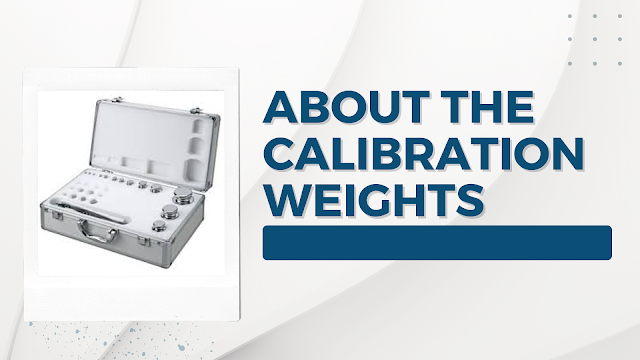A Complete Guide About the Calibration Weights in Laboratories
Calibration weights are perfectly suitable for balancing measuring instruments, scales, as well as balances. They are commonly seen in laboratories, manufacturing, as well as in shipping applications. In addition, they are mainstays in most laboratories as they help ensure that the lab balances provide you with accurate readings. However, they all are not made the same. The calibration weights are assigned a class based on the weight's accuracy. Moreover, there are different sets of weight classes, including ASTM, OIML, & NIST and there are certifications granted to different weights.
Basically, these weights are used to check the scale's reading to ensure if it is still accurate. They are used when calibrating a scale. In this blog, we are going to discuss different classes of calibration weights, and we also see other factors to consider when purchasing weights.
Important Classes of Weights
NIST:
NIST is referred to as the National Institute of Standards and Technology (NIST) Class F weights are generally used in industrial settings in order to verify Class III, Class IIII, & non-designated scales. They may also be used in warehouses & manufacturing settings in order to calibrate scales used for the shipping or production of large products. They aren’t typically used in laboratories as they are not accurate enough to verify the scales used for most laboratory applications.
ASTM:
ASTM International is a nonprofit, non-governmental organization that develops voluntary consensus standards. It has developed 10 calibration weight classes guided by the document ASTM E 617: ASTM Class 000 thru ASTM Class 7. They are the most common type of calibration weights which are used in laboratories.
OIML:
The Organisation Internationale de Métrologie Légale (OIML) is an intergovernmental organization that offers standards & systems with the goal of harmonizing the legal metrology procedures. From lowest to highest tolerance, the OIML classes are E1, E2, F1, F2, M1, M2, & M3. Most laboratory applications need OIML weights of Class F2 or below.
How often weights should be tested will depend on their frequency of use & the necessary accuracy of the application. These kinds of weights are improperly handled, so they may need to be re-tested immediately depending on the sensitivity or legal requirements of the application.
Factors to Consider While Purchasing the Calibration Weights
Here are a few options when browsing calibration weights:
Style
There are several styles of calibration weights that are suitable for different applications. Here are the most common ones found in a lab setting:
- Cylindrical calibration weight
- Grip handle calibration weight
- Pipe handle calibration weight
- Knob calibration weight
- Hook calibration weight
- Slotted calibration weight
- Leaf calibration weight
Material
The materials are considered one of the essential factors when purchasing calibration weight. Manufacturers use high-quality material to create calibration weights that vary depending on the weight & use. Most weights are made from stainless steel or aluminum, with the latter being used for smaller weights. Some heavier or less accurate weights are made up of cast iron.
Construction
Most calibration weights consist of a single piece of cast metal. However, certain weights have a two-piece construction. A two-piece weight consists of a knob that screws into the body of the weight. There is a cavity below the thread, which contains adjusting material, so it is usually the same as the material used to make the weight.
Jade Scientific Inc. can find the right precision weight for you! In order to choose the appropriate calibration weight, you must first determine exactly how you intend to use the weight. Your unique application requirements will help you better determine exactly which weight will suit your needs. If you still don’t understand what type of weights you need, feel free to call us on our helpline number.




Comments
Post a Comment